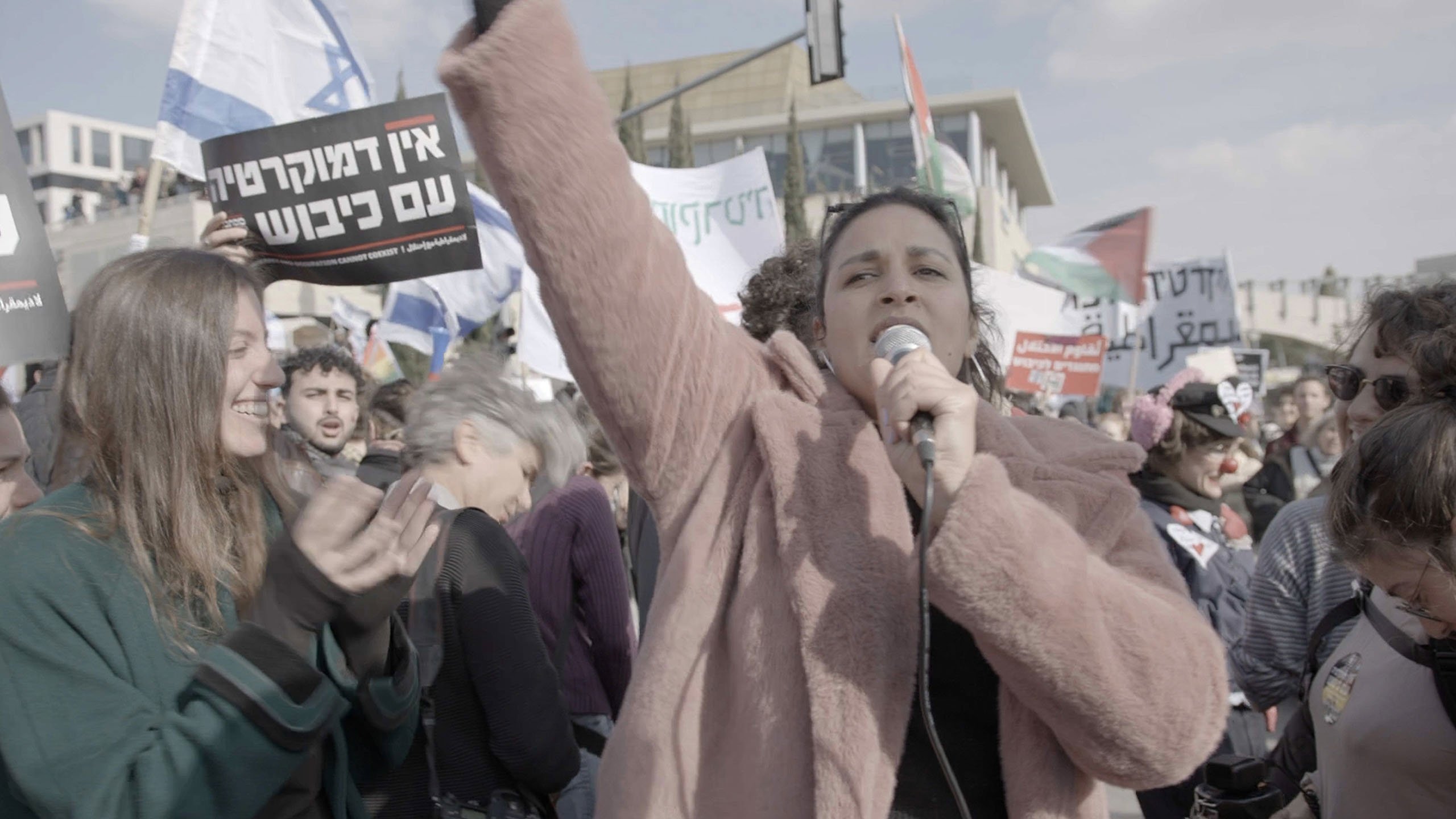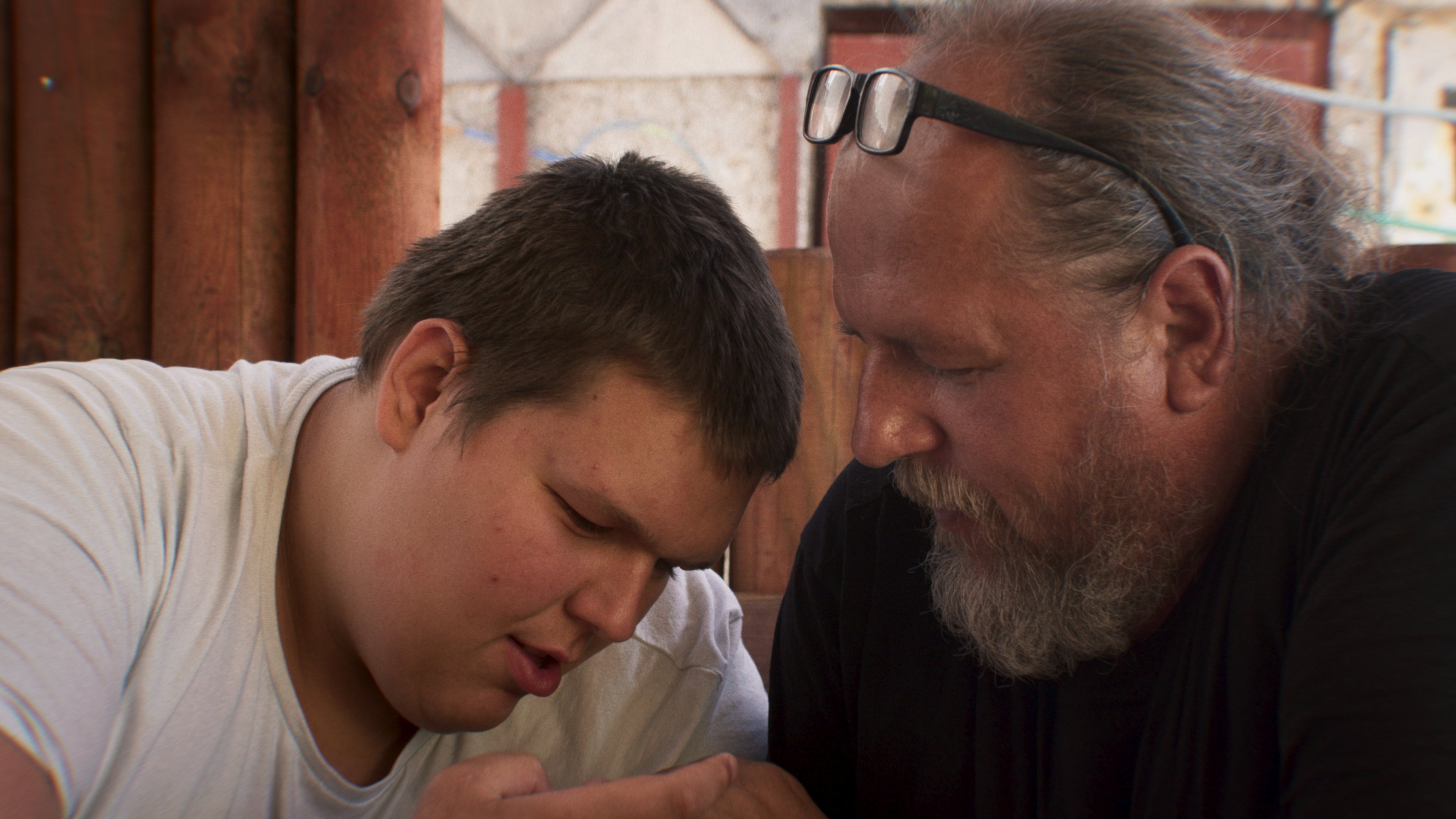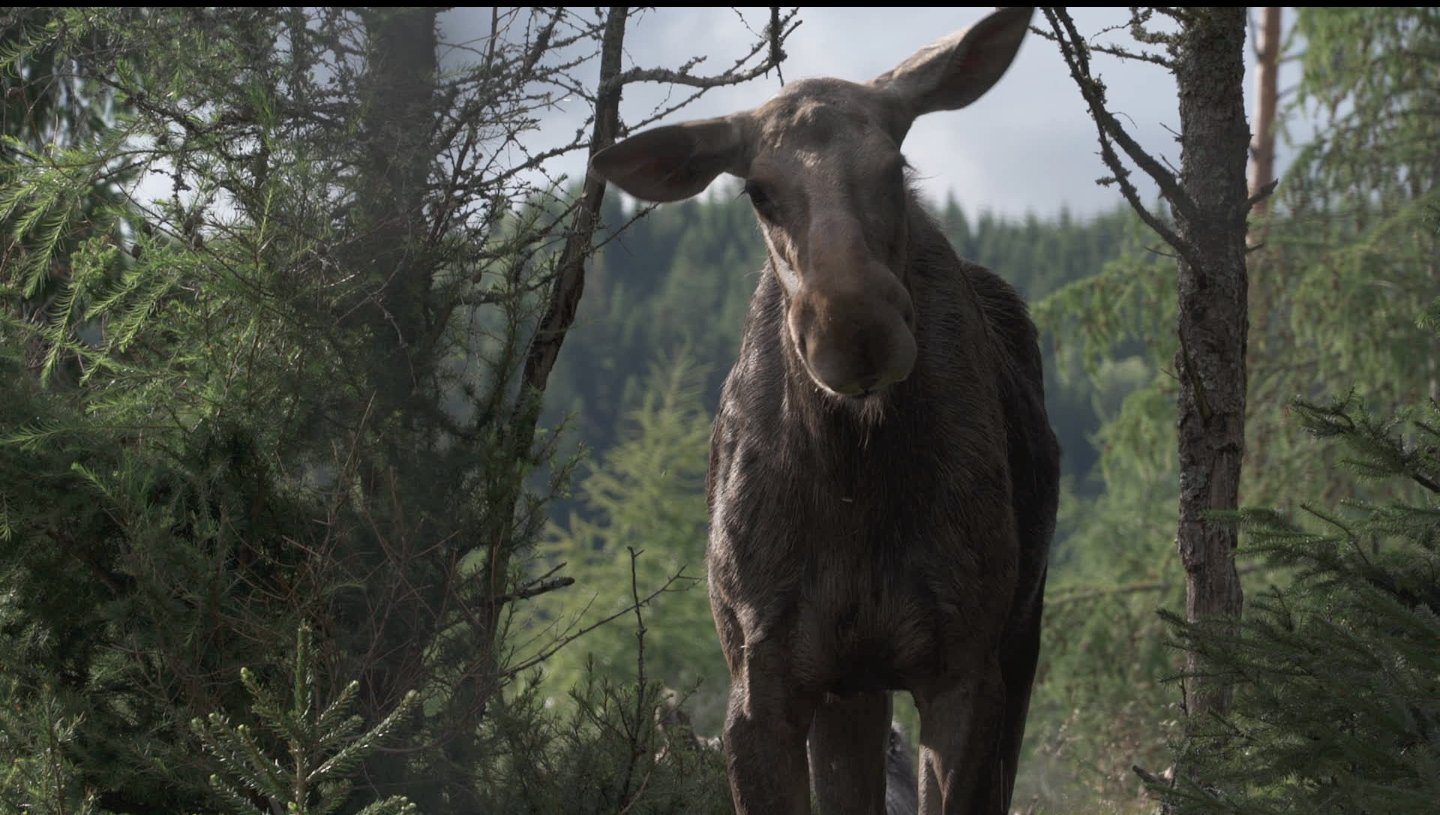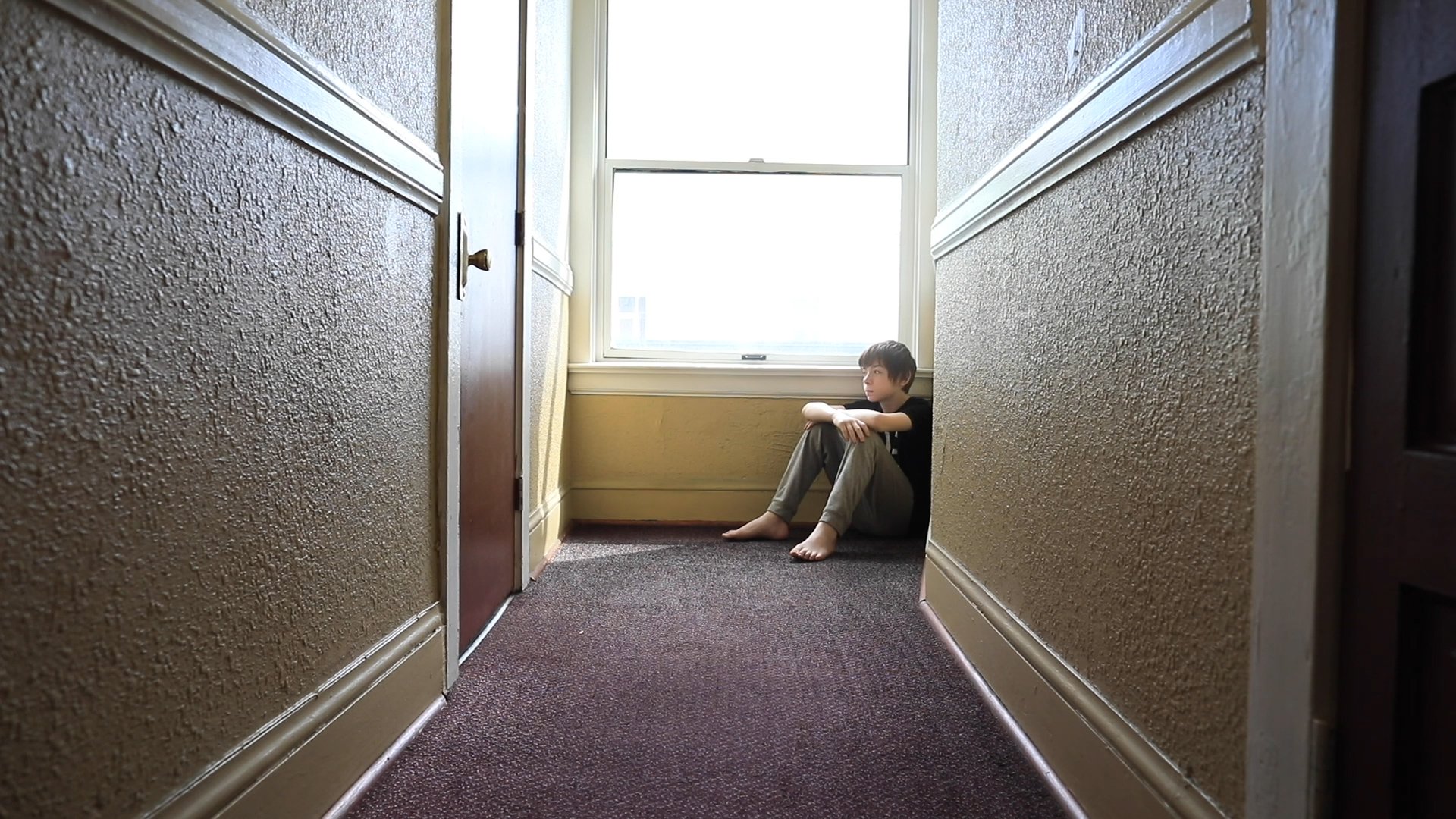This year's Ji.hlava International Documentary Film Festival begins in five weeks and will last ten days. The program will feature new films from Czechia and abroad, film retrospectives, and the best of world experimental cinema. The Taiwanese film legend Tsai Ming-liang will shoot and present the world premiere of the new Walker series film at Ji.hlava. The discussion platform Inspiration Forum will focus on the topics of love, money, radicalization, and the future of Europe. The 29th Ji.hlava IDFF will take place from October 24 to November 2.
"Ji.hlava will once again take place over ten days, a format that proved successful last year. The program presents the most successful festival films alongside new works by the upcoming generation of filmmakers and experimental works. It is this diversity that shows how lively and engaging contemporary documentary film is," says Ji.hlava director Marek Hovorka.
Tsai Ming-liang returns to Jihlava to shoot a film
Following last year's visit, Tsai Ming-liang, a leading representative of Taiwanese cinema, who was awarded the Award for Contribution to Cinema at the festival in 2024, will return to Jihlava. During this year's festival, he will shoot a film for his famous Walker series, and also present it here in its world premiere.
"Tsai Ming-liang is one of the most prominent Asian filmmakers, who regularly presents his films in Cannes, Venice, and Berlin. We are delighted that his visit to last year's festival inspired him to shoot a film for his acclaimed series. It is a great honor for Ji.hlava as a festival and for the Czech Republic, which will thus join Hong Kong, Malaysia, France, and the USA, where Tsai Ming-liang shot the previous parts," said Hovorka, introducing the upcoming film.
Tsai Ming-liang moves on the border between film and visual art. He is the author of numerous installations for galleries and museums of contemporary art, but his roots lie in cinematography.
The film, which will be made directly during the festival in collaboration with FAMU students who will collaborate in key positions as part of the film faculty's mentoring program. Post-production will take place at FAMU Studio, and the finished film will be premiered on Saturday, November 1. "The films from the Walker series are a call to slow down, to stop, to change our perception. They are the antithesis of today's digital civilization," says Hovorka, adding that Tsai Ming-liang greatly appreciates Czech support for Taiwan. The filming was financially supported by the Taiwanese Ministry of Culture.
Food and Epoch
Food will be one of the thread lines of this year's Ji.hlava, especially thanks to the retrospective Food and Epoch. "We were looking for a theme that connects people. And we came up with food, cooking, and dining," says Marek Hovorka. "When we started to examine films related to food more deeply, it became clear how closely they are connected to a specific era and how they reflect it," he adds. The retrospective captures the changes in Czechoslovak society through cuisine from the 1950s to the 1980s and offering a unique perspective on the cultural and political history of Czechoslovakia.
The retrospective will be complemented by the Fascination: Food retrospective, which will offer a selection of experimental films from around the world. The Ji.hlava audience can look forward to classics and newer films by authors such as Peter Kubelka (Schwechater, 1958), Michael Snow (Breakfast, 1972), Cécile Fontaine (Overeating, 1984), and Mike Hoolboom (Ice Cream, 2021), as well as unique historical pieces such as Louis Lumière's Repas de bébé from 1895, which captures the morning feeding of a small child. Films from Austria, Finland, Canada, France, and the USA offer a poetic, provocative, and visually inventive look at eating, the body, and everyday habits, often through exaggeration, abstraction, or visual collage. "Food has historically been both an object of depiction and audiovisual exploration and a means of creating images—we will also see material experiments where various foods and delicacies chemically affected film material, or an attempt to produce vegan film raw material," says section programmer Andrea Slováková.
What does the Czech Joy section have to offer?
This year's Ji.hlava will see the premiere of director Martin Trabalík's second feature-length documentary, What About Petey? The film follows three years in the life of widowed father Petr Jochec, who, after the sudden death of his wife, was left alone to care for two teenage children –his daughter Vanessa and his son Petr, who suffers from a severe autism spectrum disorder
The documentary comedy Is It Worth It? By Jan Strejcovský takes the Prague audience behind the scenes of the Czech and international art market. The film follows prominent artists, gallery owners, and collectors who, in an environment driven by money and prestige, seek the boundary between authentic art and market value.
In the documentary film AMOOSED: A Moose Odyssey, its director and ethnozoologist Hana Nováková sets out on a journey in the footsteps of moose and "moose-obsessed" people around the world – from the mysterious moose of former Czechoslovakia, through a Russian station for their domestication and a Swedish safari where moose live in human households, to Nova Scotia in Canada, where the indigenous Mi'qmaq people consider the moose a sacred totem animal.
This year's program will also feature the feature-length debut Unborn Father by director and editor Michal Böhm. His intimate film diary was shot over six years on an 8mm camera. In it, the author becomes both the protagonist and the narrator. "The film is about searching for a new family at a time when the old one is leaving. For six years, I kept something like a film diary on an 8mm camera and gradually turned it into a testimony about the desire for fatherhood," says director Michal Böhm.
The dark side of America, Gaza, and artificial intelligence
Every year, Ji.hlava presents the most remarkable recent films in its Testimonies and Constellations sections. What new releases can we look forward to? Topics include reflections on events in the US, the Gaza Strip, and the relationship between humans and artificial intelligence.
The impressive film Flophouse America by Norwegian director Monica Strømdahl follows the life of a 12-year-old boy growing up in a motel room with his alcohol-dependent parents. The film offers an intimate look at childhood and adolescence, where poverty and alcoholism shape everyday reality and even mutual love cannot change it for the better. This film about the dark side of America was screened at the prestigious Danish festival CPH:DOX, and Ji.hlava will present it in the non-competitive section Constellation.
The film The Librarians by American director Kim A. Snyder follows courageous librarians in Texas, Florida, and other US states who have stood up against censorship and bans on books focusing on LGBTQ+ topics, race, and sexuality. Despite facing threats and the threat of losing their jobs, they are fighting for the freedom to read. Ji.hlava will screen it in the Testimonies competition section.
The current topic of the Israeli-Palestinian conflict is addressed in the film Coexistence, My Ass! by director Amber Fares, which follows Israeli stand-up comedian Noam Shuster-Eliassi. She grew up in the Israeli village of Wahat al-Salam–Neve Shalom, where Jews and Palestinians live side by side. This experience led her to work in the field of peace diplomacy, including at the UN. However, she gradually realized that traditional approaches to peace are often ineffective and one-sided. She therefore decided to use humor as a tool for change. In her show, she focuses on the absurdity of Israeli politics, the normalization of occupation, and international inaction. The film, which won an award at the Sundance Film Festival, will be screened at Ji.hlava in the Testimony section.
The documentary Wider Than the Sky by Italian director Valerio Jalongo, known for his ability to connect science, art, and philosophy, explores the relationship between humans and artificial intelligence. It asks how technology affects human identity and whether it is possible to create a collective intelligence that would serve the positive development of humanity. The film takes place in laboratories where scientists create 3D maps of the human brain and shows interactions between humans and humanoid robots that are learning to express emotions and communicate with people.
Experimental sections
This year's Fascination international competition features 24 films and presents a diverse cross-section of contemporary experimental film from around the world. "We selected from more than 1,300 films. And as every year, talents at the beginning of their creative careers meet established big names in experimental film, creating a picture of the current state of audiovisual exploration and discovery," says programmer Andrea Slováková. The section brings together personal and political films from the US, Canada, Japan, Italy, Finland, South Korea, Spain, Hungary, India, Germany, Austria, Croatia, Portugal, Tunisia, and Slovakia, offering the audience a variety of creative approaches. Examples include the poetic recording of the summer solstice Midsummer (dir. Masha Vlasova), the South Korean film 11:22 (dir. Yi Myun), which captures the events of April 4, 2025, when the local president was recalled, the Italian film Transparencies (dir. Mario Blaconà), which works with the motif of concentration camp walls, and I think I said "yes" (dir. Pere Ginard), which combines found footage and animation into an abstract narrative.
Czech experimental film is the focus of the competition section Fascinations: Exprmntl.cz, which will offer 13 films. "This year's selection is a journey through time: alongside works using artificial intelligence tools, there is a wild experiment with classic 16 mm film," says Slováková. The section is a cross-section of contemporary Czech independent filmmaking and includes films from across the country, ranging from introspective essays to provocative social probes. Notable titles include Zbyněk Baladrán's The Totalitarian Society of the Image, the third part of a trilogy on representation, art, and politics. Another noteworthy title is Lucie Rosenfeldová's How Not to Remember Our Bodies, which delves into the archives of reproductive and abortion policy in socialist Czechoslovakia. The film compares these policies with the more familiar ideas of the global pro-choice movement. The section also features several debuting female authors from film and art schools.
The Siren Test will belong to women
The central film of the Siren Test section for films about music and sound is Monk in Pieces, which has been warmly received since its premiere at the Berlinale in 2025. This energetic portrait of Meredith Monk, an American composer, performer, and visionary, presents an encouraging message that it is possible to achieve amazing imagination, life, community, reconciliation with one's body, female roles, open spirituality, and connection with the present and the world. The film also features Icelandic singer Björk, to whom a special lecture and screening is dedicated at the festival: on the occasion of the artist's 60th birthday, the section’s programmer Pavel Klusák recaps her connection with Michel Gondry, Spike Jonze, Carlota Guerero, and other creators of music videos, films, and virtual reality. Another powerful female story is offered by Luiza Schmid’s I Want It All. Hildegard Knef – the fate of a chanson singer between West and East Germany in the 20th century.
Inspiration Forum: Palestinian-Canadian doctor and Taiwanese writer
Europe, love, money, and radicalization. These are the four topics that will be addressed this year by the Inspiration Forum, a discussion platform of the Ji.hlava IDFF. Dozens of personalities from Czechia and around the world will come to Jihlava. "The Inspiration Forum is a space where we look for ways to live better, even though the world around us may seem complicated," says Inspiration Forum director Tereza Swadoschová.
October 25 – About Europe: Old Continent, New Questions
Europe faces many challenges today. External pressures include the war in Ukraine, cyberattacks, and the energy crisis. The continent needs to strengthen its defenses and resilience in order to survive at a time when old certainties are being shaken. At the same time, it is looking for a new narrative – a story that would reunite its inhabitants. Where does the real source of cohesion lie – and what can be of support to Czechia and Europe as a whole?
Taiwanese writer Kevin Chen, who lives in Berlin, knows what it's like to start over between languages and cultures. His award-winning novel Ghost Town, translated into thirteen languages, opens up the world of migration, uprooting, and the search for a place where we belong. He will bring to Jihlava a perspective that reminds us that the story of Europe does not have to be written only by those who were born there. Chen will show that Europe can be polyphonic – shaped by personal stories of resettlement, integration, and the search for belonging.
October 26 – Heart and Love: How to Care for Relationships, the Body, and the World?
Love is one of the most powerful forces in our lives. What does it mean to love today? How can we care for our own hearts – both physical and emotional? And how can we maintain the relationships that hold us together, even at a time when the old order is falling apart?
Palestinian-Canadian doctor and peace activist Izzeldin Abuelaish became a symbol of courage after losing three daughters during the war in Gaza – and yet refusing to give in to hatred. The author of I Will Not Hate lectures at universities around the world and has been nominated for the Nobel Peace Prize several times. In Jihlava, he will show that love can be more than a personal feeling: it can be a radical political gesture, a path to healing, and the foundation for future coexistence.
October 31 – Money: it makes the world go round – but where and why?
Money makes the world go round and shapes our everyday lives. It determines who has power and how society functions. How can we ensure that everyone has enough? And can money lead us to a future that belongs to everyone – not just the chosen few?
Renowned Czech artist Kateřina Šedá transforms the lives of ordinary people into art. She will bring her project to Jihlava – a currency in which each banknote tells the story of former employees of the Elite factory in the city of Varnsdorf. Instead of numbers in tables, real human destinies come to life, reminding us that the value of a lifetime of work is more than just economic indicators. Šedá shows that even money can be a tool for memory and solidarity.
November 1 – We are becoming radicalized: how can we understand each other again in the digital world?
Radicalization is permeating our relationships, politics, and everyday communication. Today's digital environment is changing not only the world around us, but also our very ability to understand each other. What awaits a society that algorithms are fragmenting into closed worlds?
Researcher Eviane Leidig from the University of Oslo is tracking how the far right has become a digital phenomenon. In her book The Women of the Far Right, she shows that radicalization often comes inconspicuously—through influencers, healthy lifestyle videos, or mom communities. In Jihlava, she will explore how what at first glance appears to be "common sense" can actually normalize hatred and transform the values of an entire generation.
The 29th Ji.hlava IDFF will take place on October 24–November 2, 2025.













